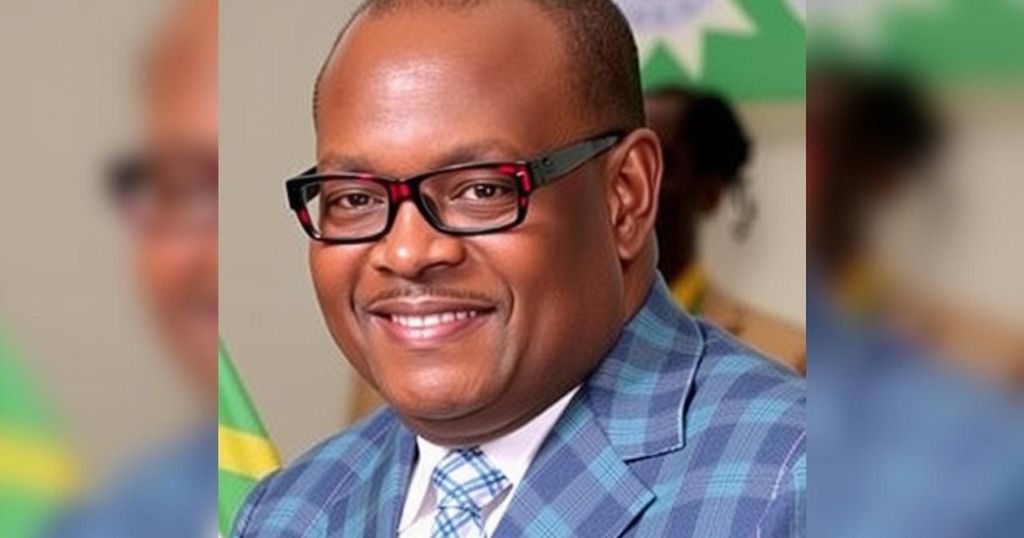Ghana’s 2024 Election Results: NPP’s Defeat Amid Economic Crisis and Corruption Concerns
In the 2024 Ghana elections, the ruling New Patriotic Party (NPP) faced a decisive defeat against the opposition National Democratic Congress (NDC) led by John Mahama. Voter dissatisfaction was fueled by severe economic challenges, high unemployment, and public corruption allegations against the NPP government. This election marked a significant shift in Ghana’s political landscape, reflecting emerging trends across Africa where ruling parties are increasingly facing electoral losses amidst economic instability.
The 2024 Ghana election witnessed a significant political shift as the ruling New Patriotic Party (NPP), led by President Nana Akufo-Addo and his running mate Dr. Mahamudu Bawumia, was defeated by the opposition National Democratic Congress (NDC) under the leadership of former President John Mahama. Voter sentiments reflected severe discontent with the eight-year tenure of the NPP, primarily due to ongoing economic challenges such as skyrocketing inflation, high unemployment rates, and rising living costs. This election marked a notable shift, as Ghana has historically limited party governance to a maximum of eight years, making NPP’s campaign slogan, “to break the eight,” a focal point of debate.
Despite the NPP’s attempts to highlight achievements like the introduction of free senior high school education and extensive rural hospitals construction, public perception remained overwhelmingly negative. Many Ghanaians expressed frustrations regarding the government’s mismanagement of the economy, excessive taxation, and widespread corruption allegations against officials. The NPP’s weakening voter base was further illustrated in their loss of crucial parliamentary seats, where several prominent ministers failed to secure re-election.
In sharp contrast, the NDC capitalized on public dissatisfaction, with pre-election surveys indicating a substantial lead for John Mahama among key demographics, particularly younger voters. The NDC’s campaign successfully positioned them as capable of addressing the economic crisis, thus convincing a majority of voters to back Mahama, demonstrating a cohesive strategy that resonated with the electorate’s urgent needs. This election result contributes to an emerging trend across Africa, where ruling parties face increasing resistance amid economic instability and governance issues.
This election outcome not only signifies a critical change in Ghana’s political landscape but also reflects broader patterns seen in several African nations where ruling parties have faced electoral losses due to similar challenges.
Thus, the 2024 elections in Ghana highlight the significant factors leading to political turnover, notably economic hardship, corruption concerns, and an increasingly organized opposition. The implications of this political shift will be crucial for Ghana’s future governance and socioeconomic recovery.
The political history of Ghana since its transition to democracy in the fourth republic, starting in 1992, has been characterized by a maximum of eight years in power for ruling parties. This framework has instilled a norm that no party holds governance for more than two consecutive terms. The 2024 elections were pivotal for the NPP, seeking to break this tradition, but they faced substantial opposition due to escalating economic issues that plagued their administration. These elections were seen as a referendum on their management of the economy amidst challenges such as inflation, unemployment, and rising living costs, coupled with public discontent regarding corruption and governance.
The 2024 elections in Ghana encapsulate a transformative moment in the nation’s politics as the NPP, governed by Nana Akufo-Addo and Bawumia, was ousted by the NDC under John Mahama. This shift underscores the electorate’s response to significant economic distress, policies perceived as ineffective, and allegations of corruption. The results align with a broader trend in Africa, wherein ruling parties are increasingly being held accountable through electoral processes, reflecting a demand for effective governance and socioeconomic reforms. Looking ahead, the NDC will be tasked with addressing the urgent concerns of the Ghanaian people in order to restore public trust and stabilize the economy.
Original Source: www.bbc.com




Post Comment